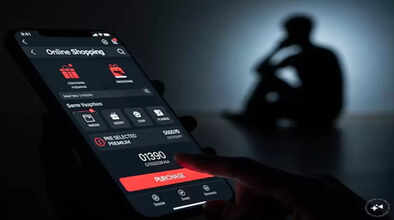The web of dark patterns in online apps, how users are confused, harassed and misled..

You must have often noticed on digital apps and websites that it is difficult to cancel subscriptions, some service is offered repeatedly, which you cannot refuse, or something is clicked by mistake and your money is deducted. This is called 'dark patterns'. Dark patterns are a design strategy that deliberately confuses users, pushes them towards a decision, or takes them in a direction that is not in their interest.
These tricks include "fake discounts", "auto-subscription", "hassle in cancelling", "unwanted add-ons", and "useless popups". This not only breaks the trust of users but also leads to the loss of both data and money. See an example: You started a trial of an app, but the cancel button is not found or is hidden very deeply. Because of this, money is deducted after the trial. This is a classic dark pattern.
Why are these patterns not stopping?
Companies benefit from this, so they are continuously using them.
There is still less awareness among users; many people do not understand what happened to them.
There is no concrete law on this in India yet, although the Consumer Ministry has talked about stopping it.
What are the government and regulators doing?
The Government of India has recently warned companies to stay away from such dark patterns. A draft guideline was also released in 2023, which said that such deceptive designs would be banned. However, no strict action has been taken yet, and companies are taking advantage of loopholes.
What should users do?
Be cautious while using any app or website.
Reading “Terms and Conditions” seems boring, but it is necessary.
Understand its cancellation process before starting a subscription.
Before clicking on any offer or free trial, think whether there is a trap behind it.
Disclaimer: This content has been sourced and edited from News 18 hindi. While we have made modifications for clarity and presentation, the original content belongs to its respective authors and website. We do not claim ownership of the content.

